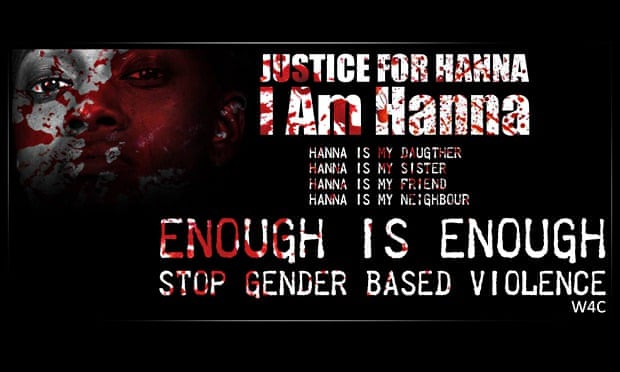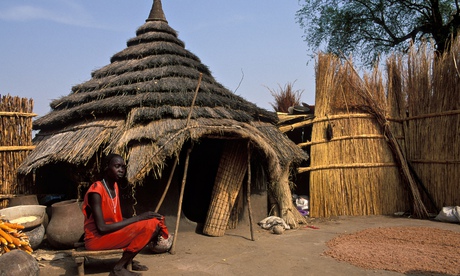Human Rights Situation Dire Ahead of May 2015 Elections
The Ethiopian government fell back on tried and true measures to muzzle any perceived dissent in 2014. Journalists and dissenters suffered most, snuffing out any hope that the government would widen political space ahead of the May 2015 elections.
(Nairobi) – The Ethiopian government during 2014 intensified its campaign of arrests, prosecutions, and unlawful force to silence criticism, Human Rights Watch said today in its World Report 2015. The government responded to peaceful protests with harassment, threats, and arbitrary detention, and used draconian laws to further repress journalists, opposition activists, and critics.
“The Ethiopian government fell back on tried and true measures to muzzle any perceived dissent in 2014,” said Leslie Lefkow, deputy Africa director. “Journalists and dissenters suffered most, snuffing out any hope that the government would widen political space ahead of the May 2015 elections.”
In the 656-page world report, its 25th edition, Human Rights Watch reviews human rights practices in more than 90 countries. In his introductory essay, Executive Director Kenneth Roth urges governments to recognize that human rights offer an effective moral guide in turbulent times, and that violating rights can spark or aggravate serious security challenges. The short-term gains of undermining core values of freedom and non-discrimination are rarely worth the long-term price.
Ethiopia’s dismal rights record faced little criticism from donor countries in 2014. Throughout the year, state security forces harassed and detained leaders and supporters of Ethiopian opposition parties. Security personnel responded to protests in Oromia in April and May with excessive force, resulting in the deaths of at least several dozen people, and the arrests of hundreds more. The authorities regularly blocked the Semawayi (Blue) Party’s attempts to hold protests.
Media remain under a government stranglehold, with many journalists having to choose between self-censorship, harassment and arrest, and exile. In 2014, dozens of journalists fled the country following threats. In July, the government charged seven bloggers known as Zone 9 and three journalists under the abusive Anti-Terrorism Proclamation. In August, the owners of six private publications were charged under the criminal code following threats against their publications. The government blocks websites and blogs and regularly monitors and records telephone calls.
The authorities have been displacing indigenous populations without appropriate consultation or compensation in the lower Omo Valley to make way for the development of sugar plantations. Villagers and activists who have questioned the development plans face arrest and harassment.
The government showed no willingness to amend the Anti-Terrorism Law or the Charities and Societies Proclamation, despite increasing condemnation of these laws for violating basic rights. Authorities more rigorously enforced the Charities and Societies Proclamation, which bars organizations from working on human rights, good governance, conflict resolution, and advocacy on the rights of women, children, and people with disabilities if the organizations receive more than 10 percent of their funds from foreign sources.
“The government’s crackdown on free expression in 2014 is a bad sign for elections in 2015,” Lefkow said.
“The Ethiopian government fell back on tried and true measures to muzzle any perceived dissent in 2014,” said Leslie Lefkow, deputy Africa director. “Journalists and dissenters suffered most, snuffing out any hope that the government would widen political space ahead of the May 2015 elections.”
In the 656-page world report, its 25th edition, Human Rights Watch reviews human rights practices in more than 90 countries. In his introductory essay, Executive Director Kenneth Roth urges governments to recognize that human rights offer an effective moral guide in turbulent times, and that violating rights can spark or aggravate serious security challenges. The short-term gains of undermining core values of freedom and non-discrimination are rarely worth the long-term price.
Ethiopia’s dismal rights record faced little criticism from donor countries in 2014. Throughout the year, state security forces harassed and detained leaders and supporters of Ethiopian opposition parties. Security personnel responded to protests in Oromia in April and May with excessive force, resulting in the deaths of at least several dozen people, and the arrests of hundreds more. The authorities regularly blocked the Semawayi (Blue) Party’s attempts to hold protests.
Media remain under a government stranglehold, with many journalists having to choose between self-censorship, harassment and arrest, and exile. In 2014, dozens of journalists fled the country following threats. In July, the government charged seven bloggers known as Zone 9 and three journalists under the abusive Anti-Terrorism Proclamation. In August, the owners of six private publications were charged under the criminal code following threats against their publications. The government blocks websites and blogs and regularly monitors and records telephone calls.
The authorities have been displacing indigenous populations without appropriate consultation or compensation in the lower Omo Valley to make way for the development of sugar plantations. Villagers and activists who have questioned the development plans face arrest and harassment.
The government showed no willingness to amend the Anti-Terrorism Law or the Charities and Societies Proclamation, despite increasing condemnation of these laws for violating basic rights. Authorities more rigorously enforced the Charities and Societies Proclamation, which bars organizations from working on human rights, good governance, conflict resolution, and advocacy on the rights of women, children, and people with disabilities if the organizations receive more than 10 percent of their funds from foreign sources.
“The government’s crackdown on free expression in 2014 is a bad sign for elections in 2015,” Lefkow said.


















